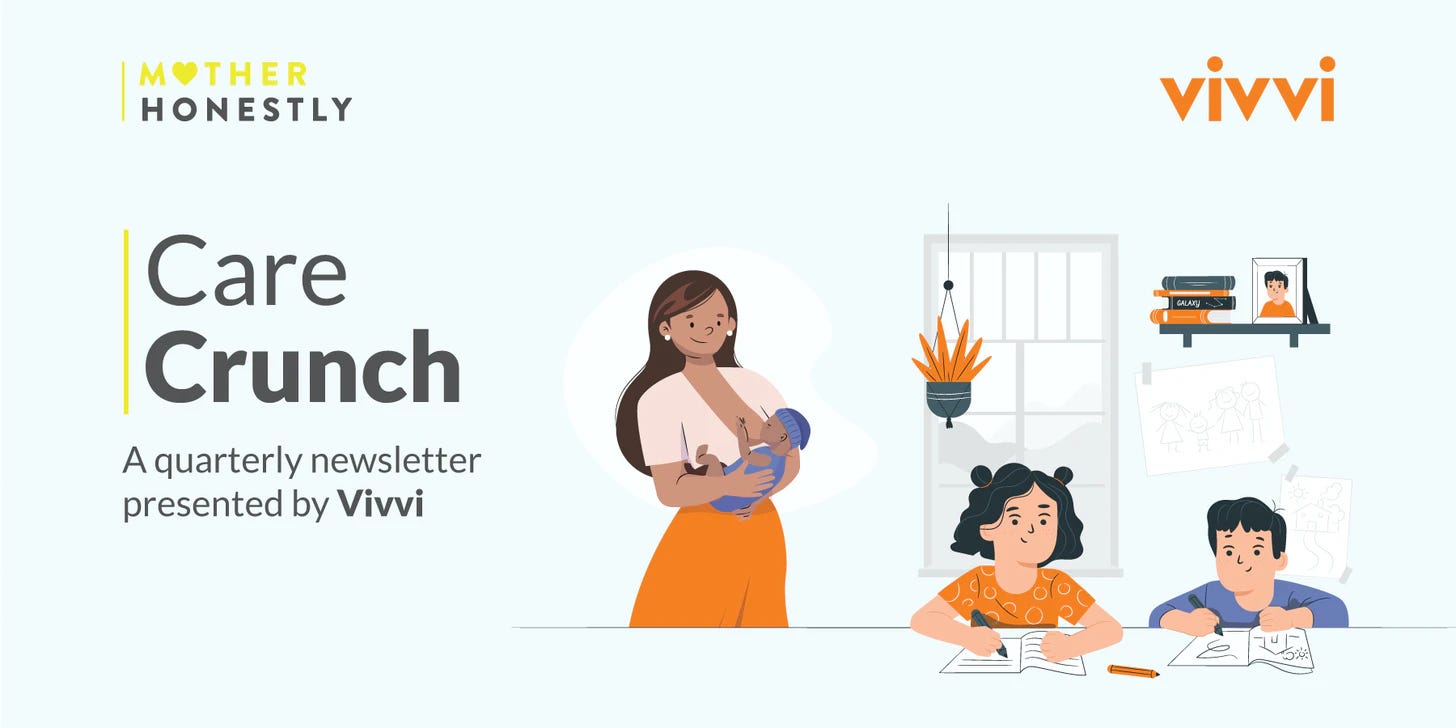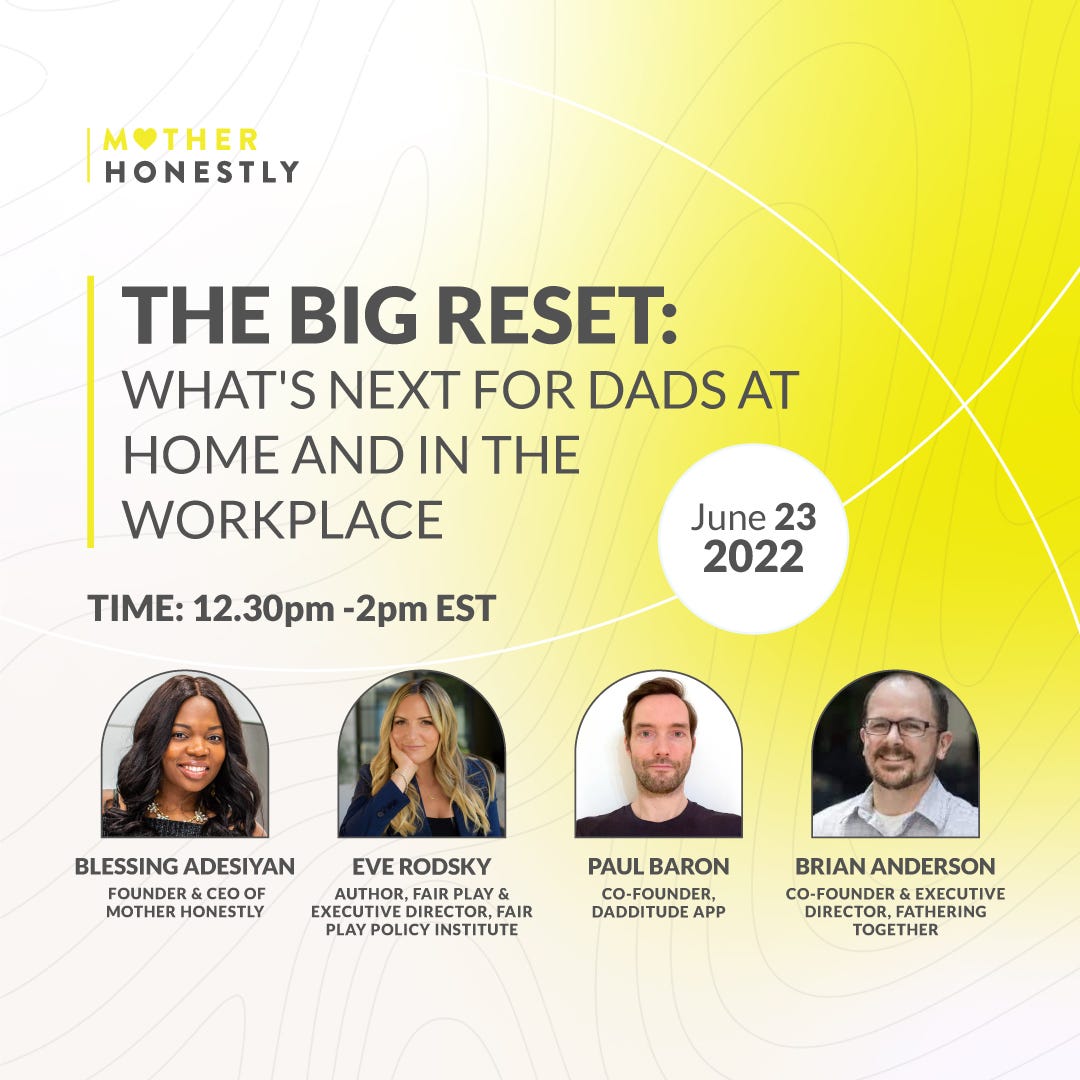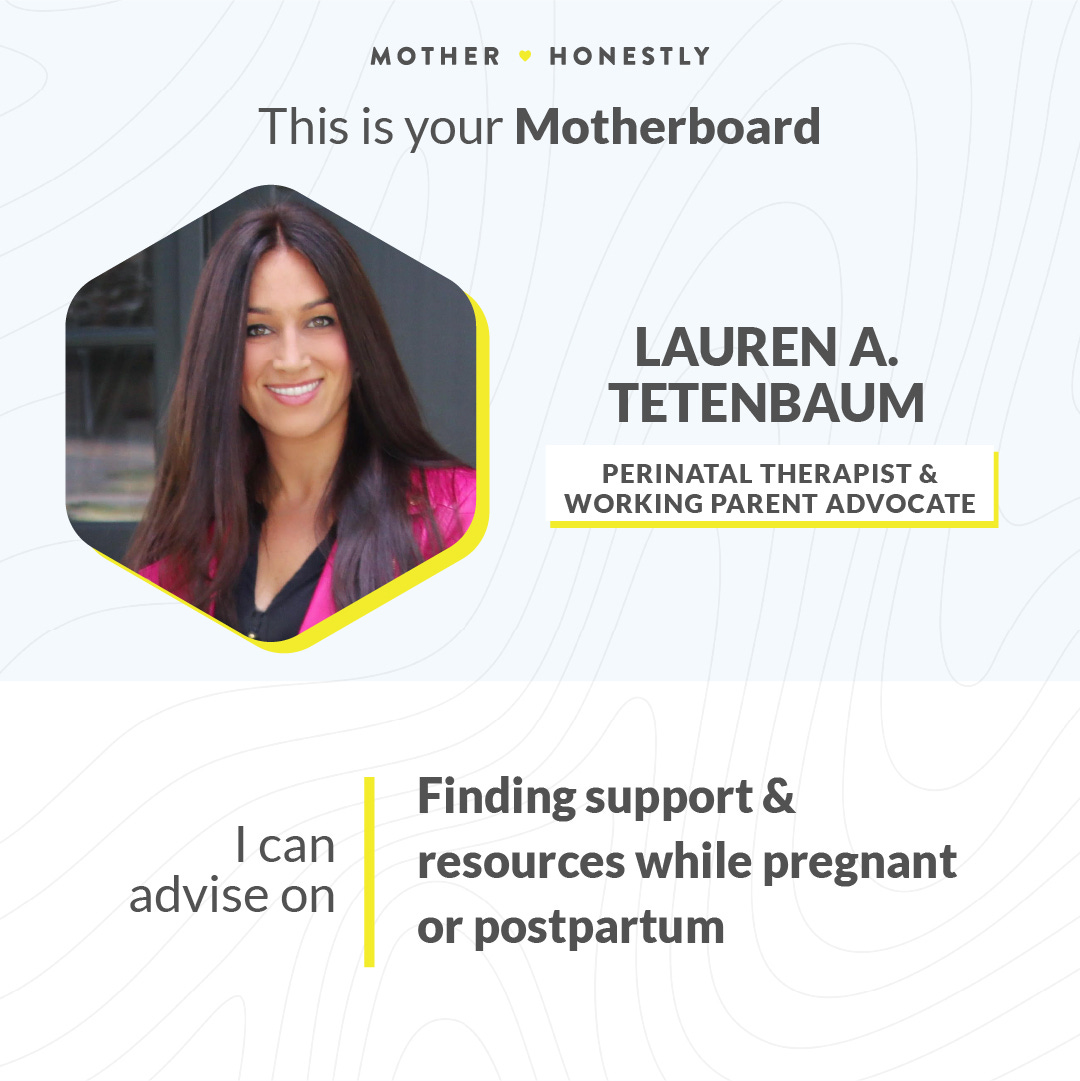Care Crunch: Child Care Is More Than Just a “Mom” Issue 🗣️
Why everyone should worry about America's care crisis.
"Other countries have social safety nets. The U.S. has women."
I think about this quote by sociologist Jessica Calarco a lot.
She made the astute observation in November 2020, when American moms were leaving the labor force in droves, unlike our European counterparts. Though school and daycare closures pushed many moms out of the workforce in America, we have long lacked the support that our parenting peers in Europe receive. We don’t have paid parental leave. We don’t have affordable child care.
We just have individual families, struggling to do the best they can. And a culture that places the onus on women to provide caregiving.
But the pandemic proved with disastrous results what happens when we lean so heavily on moms for child care: Women fall behind. We leave jobs we love. We scale back on our responsibilities at work, putting ourselves out of contention for raises and promotions. Or, we simply struggle to “do it all,” sacrificing our mental and physical health along the way.
That’s not just a problem for moms. (Although it’s a pretty big problem for moms, which is reason enough to care, if you ask us.) It’s also a problem for everyone else. It’s a problem for the U.S. economy.
That’s because caregiving is the work that enables all other work to happen. When parents don’t have back-up care when their kid is sick or school is closed, they can’t come to work. When parents can’t find affordable, reliable child care in their area, they leave the workforce.
These difficult decisions have long-term consequences for the parents who have to make them. A recent analysis by Payscale found that men and women who take time away from the workforce to care for a child face a 7% wage penalty. (And, again, it’s mostly women who make that sacrifice.)
When you tally what’s lost when millions of women leave paid work, the overall costs are staggering. If labor force participation for American prime-age women—those aged 25 to 54—was currently at rates similar to those of women in Canada, Germany and the United Kingdom, there would be up to 4.85 million more women in the workforce than there are now, according to an issue brief by the National Partnership for Women & Families. The U.S. economy would generate a staggering $650 billion more annually—2.9 percent of total GDP.
When parents have consistent care, companies benefit enormously, too: Employee absences decrease, job satisfaction increases and job turnover declines by as much as 60%.
If that’s not reason enough for corporate leaders to care about child care, here’s another: It will be exceedingly difficult for organizations to achieve their DE&I goals without it. The skyrocketing cost of child care is particularly challenging for Black and Latina moms. For Black women, the cost of child care for two young children in center-based care is more than half of median household income (51%), and it’s nearly half of median household income for Hispanic mothers, according to the Center for American Progress. Companies that are serious about hiring and promoting more Black and Latina women will help make child care more affordable and accessible for their employees.
This message doesn’t seem to be sinking in across the board. Too often, employees without kids don’t see how providing parents with reliable child care would make their work day better, too. So, we asked the experts at Vivvi for tips on talking to friends and colleagues about the importance of child care. Here’s a handy script for making the case, courtesy of Vivvi CEO & Co-Founder Charles Bonello:
The Fix: How to Talk to Non-Parents About the Importance of Child Care
By Charles Bonello, CEO & Co-Founder, Vivvi
Let’s face it: Working parents need child care. They need it to be productive, they need it to explore growth opportunities, and they need it to simply show up and work.
None of this is news to working parents, who have long had to balance caregiving responsibilities with job demands, often in workplaces where non-parents were creating the company’s benefits. But it's still a relatively novel concept for the rest of the workforce, many of whom only recently got the memo about child care needs when their colleagues’ kids kept popping up on their pandemic zooms.
As we enter this next evolution of post-pandemic life, parents have the advantage of returning to workplaces that are filled with more compassion, understanding and empathy from non-parents. But we need to turn those feelings into actions, and find allies who can help us implement long-term, sustainable and affordable solutions for our child care needs. Here’s how you can talk to non-parents about the importance of child care, and help enlist them in your efforts:
Highlight the work that parents do. Working parents are a key part of many departments and teams and their work impacts everyone. When working parents have child care, they can be more successful at their jobs, and support the success of those around them.
Normalize conversations about caregiving. If you’re a manager, be transparent about your own caregiving, and talk openly and honestly about why a culture of care is good for everyone. If you’re not a manager, this worksheet can help you advocate for your child care needs.
Recognize that caregiving goes beyond parenting. Caregiving can mean taking care of elderly parents or even a pet, and many of those responsibilities are covered by employer-sponsored care benefits. When non-parents see what they have to gain by advocating alongside working parents, the argument for child care becomes a lot more compelling.
Check out how Charlie and the Vivvi team are working to normalize caregiving for Dads as part of their #dadsdoingdropoff Father’s Day campaign, and join in the conversation here.
JOIN US:
Join us on June 23 to learn more about the future of work for dads, and how families can create a more equitable division of labor at home. Register today!
BECOME A MEMBER:
Our digital membership helps you flourish at home and in the workplace with:
Access to toolkits, worksheets, resources to manage your household and career.
Monthly Motherhood Conversations with women in the workforce in similar life-stages.
Curated digital events to support your journey personally and professionally.
100+ hours of video content on child care, household management, outsourcing, managing burnout and more.
BOOK A 1-ON-1 CONSULTATION:
Lauren A. Tetenbaum, LMSW, JD, PMH-C, is an advocate and therapist certified in perinatal mental health. Through her private practice, LAT Counseling, Lauren offers cognitive behavioral and feminist-based psychotherapy. Also known as "the CounseLaur," Lauren counsels clients on romantic relationships, career choices, pregnancy and parenting, anxiety and family dynamics. Book Lauren today!
LOVE TO SEE IT
Almost 400,000 women joined the U.S. labor force in May, many of them women of color. Strong job growth bumped the labor force participation rate for women to 58.3%, just one percentage point below their pre-pandemic participation rate, according to an analysis by the National Women’s Law Center. Women of color made big gains: About 176,000 Black women, 135,000 Latinas and 134,000 Asian women joined the labor force last month.
HATE TO SEE IT
TikTok exec says he doesn’t believe parents should have paid leave. Joshua Ma, the head of TikTok's European e-commerce arm, has “stepped back” from his role after he told employees that as a “capitalist” he didn't believe companies should offer paid leave to new parents, according to The Financial Times. Cue eyeroll.
Now there’s a tampon shortage. If a formula shortage weren’t enough to push moms to the brink, tampons are disappearing from store shelves too.








